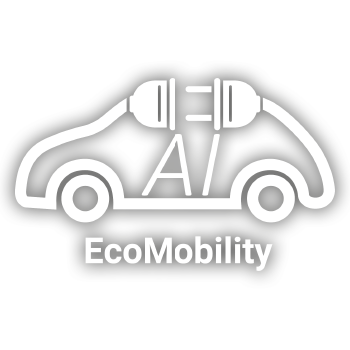
EcoMobility – How researchers at asvin labs are securing IT and vehicle systems for autonomous and semi-autonomous road traffic.
The software landscape of future mobility systems is becoming increasingly complex. Autonomous and semi-autonomous vehicles communicate in a variety of ways: with other road users, vehicle manufacturers, service apps and traffic management systems. The result is a complex software landscape with service providers and service supply chains in the cloud. This complexity increases the attack surface in cyberspace. The requirements for prevention, detection and response are increasing in such complex systems. In the field of vehicles and road traffic, however, cyber threats can also quickly become dangers to life and limb. At our asvin labs, we are continuously developing new, innovative software for the automotive industry. In the following blog series, we will present four of them.
EcoMobility
Autonomous and semi-autonomous driving is a vision of the automotive industry, but its implementation is progressing more slowly than originally planned. Despite all the complexity, there is a steady trend towards more autonomously controlled vehicles. Tech analysts at Goldman Sachs have lowered their overall growth forecast for autonomous driving, but estimates continue to show steady change. By 2030, up to 10 percent of new car sales worldwide could be level 3 vehicles: these are semi-autonomous cars in which the driver can take their eyes off the road and their hands off the steering wheel in certain situations, e.g. on a motorway in clear weather.
Researchers at asvin Labs are developing cybersecurity solutions for mobility
Researchers at asvin labs are supporting this change in road traffic by developing new cybersecurity solutions for software-defined vehicles in semi-autonomous and autonomous road traffic.
The European and German research project EcoMobility, with 47 partners from various countries, is setting up an adaptive, data-driven platform for the development and operation of semi-autonomous and autonomous vehicles. Between 1 June 2023 and 30 April 2026, the international research team will work on designing a system platform that will assist European companies, cities and regions in the transition from isolated and static modes of transport to a service-oriented, connected mobility ecosystem. This requires transport associations and transport users to be able to exchange mobility data and services securely and reliably. In addition to operational safety, the project will consider safety throughout the entire life cycle and supply chain of future mobility platforms so that vulnerabilities can be identified at an early stage and the associated risks for transport users minimised.
The cyber security researchers at asvin complement the international research consortium with their specific expertise in modelling and analysing cyber risks in complex software systems and supply chains. In the German part of the European project consortium, asvin is working closely with developers and researchers from Zetta Scale, AVL, DLR and TTTech.
The research and interim results from EcoMobility will provide important building blocks for the secure digital transformation of European mobility. Automotive manufacturers, suppliers, but also cities and regions that want to put mobility services for their citizens on an elegant and service-oriented footing will benefit in terms of cyber security. The researchers and developers at asvin labs will contribute to several components of the EcoMobility project:
asvin labs is thus contributing to the safety of autonomous vehicles and next-generation mobility systems in EcoMobility. This is an important contribution to implementing traffic safety, cyber security and regulatory frameworks in solutions for the future of mobility.
Funding
Research and development in EcoMobility is supported by the European Union and the German Federal Ministry of Research, Technology and Space








